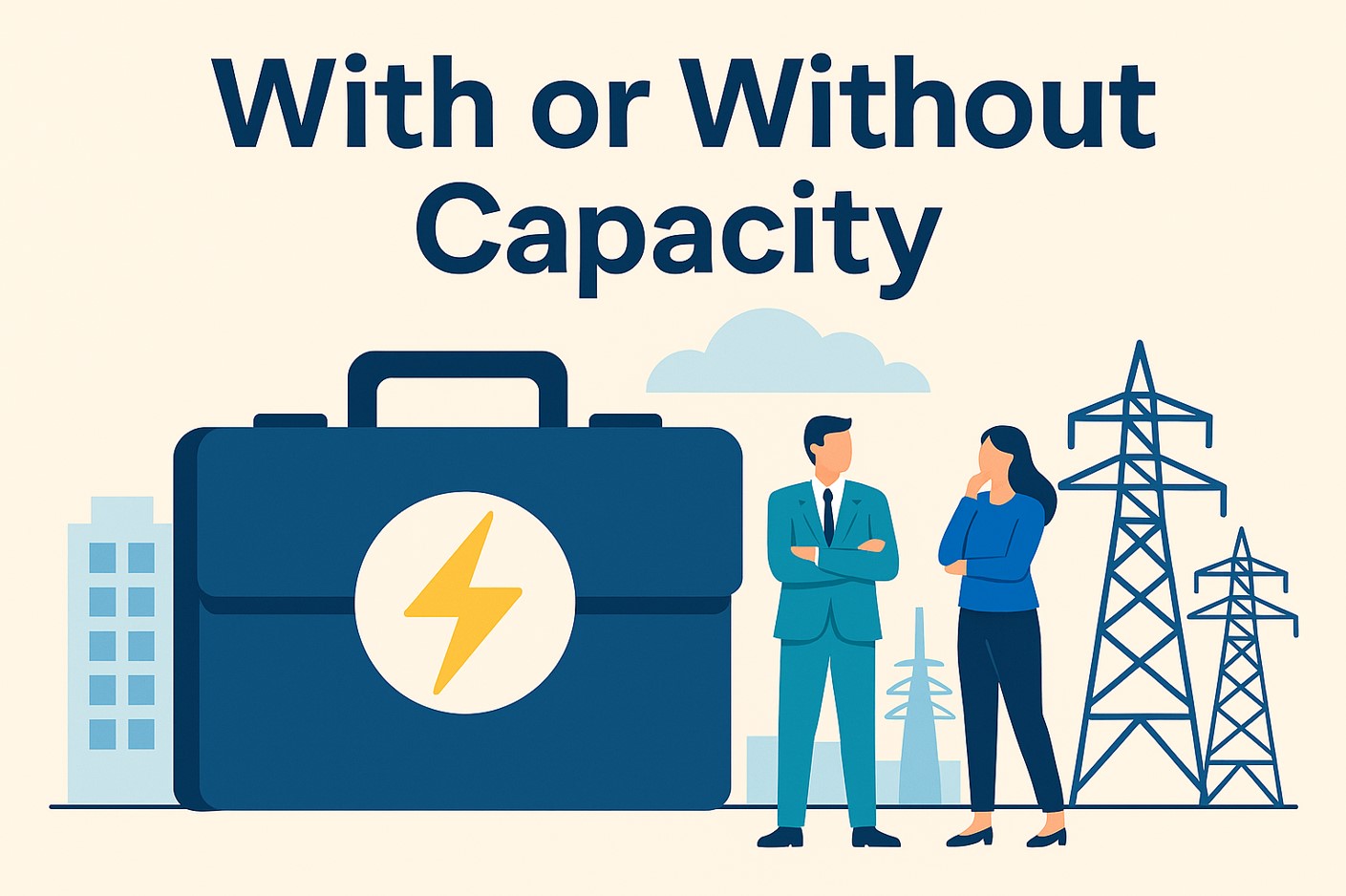With or Without Capacity

With or Without Capacity: What Commercial Electricity Buyers Need to Know
In deregulated electricity markets, commercial buyers have more choices than ever when selecting a supplier. One of the most important choices businesses face is whether to choose a contract with capacity included or without capacity (pass-through).
Understanding the difference is essential for making a smart decision that affects both your electricity budget and your exposure to price risk.
What Is Capacity in Electricity Pricing?
Capacity is not the electricity you use. It is the cost paid to power generators to ensure there is enough supply on standby to meet future peak demand. All businesses pay for capacity, either directly or indirectly.
In competitive electricity supply agreements, the capacity cost may be included in your rate or passed through separately by your utility.
Option 1: With Capacity (Bundled Rate)
In this option, your electricity supplier includes the projected cost of capacity within your fixed energy rate (per kilowatt-hour). You pay one simple, all-in rate.
Benefits:
- Budget certainty
- No surprise capacity charges from the utility
- Easier to understand billing
Drawbacks:
- Slightly higher rate (supplier builds in a risk buffer)
- You may pay more than your actual usage warrants
Option 2: Without Capacity (Pass-Through)
In this case, your supplier gives you a lower rate for energy supply, but the capacity charges are billed separately by your utility based on your specific demand during system peaks.
Benefits:
- Lower energy rate upfront
- Opportunity to save if your demand is low during peak hours
Drawbacks:
- Risk of unexpected capacity charges
- Requires active demand management and awareness of peak events
- More complex billing
Side-by-Side Comparison Chart
| Feature | With Capacity (Bundled) | Without Capacity (Pass-Through) |
|---|---|---|
| Included in Rate? | Yes | No |
| Monthly Rate Predictability | High | Medium to Low |
| Risk of Cost Fluctuations | Low | High |
| Requires Load Management? | No | Yes |
| Overall Complexity | Low | High |
| Best for... | Budget certainty | Cost savings with demand control |
Which Option Is Right for Your Business?
The choice between a bundled or pass-through capacity contract depends on your business priorities:
- Choose with capacity if you want simple, predictable energy bills and don’t have time or tools to manage energy usage.
- Choose without capacity if you understand your peak load contribution (PLC), actively manage your demand, and want to chase the lowest rate possible.
Some suppliers and brokers can help you analyze your historical usage and demand profile to determine which option could save you more over time.
When comparing commercial electricity rates, don’t just look at the price per kWh. Ask your supplier if capacity is included. A rate that seems low may come with additional capacity charges from your utility.
Making an informed choice between with or without capacity helps you align your electricity agreement with your business's risk profile, budget needs, and energy usage behavior.
Always request both options and review them side by side before signing any energy supply agreement.
If you're not sure where to start, consult with an experienced energy broker or use an online commercial electricity marketplace to compare offers - Click Here
